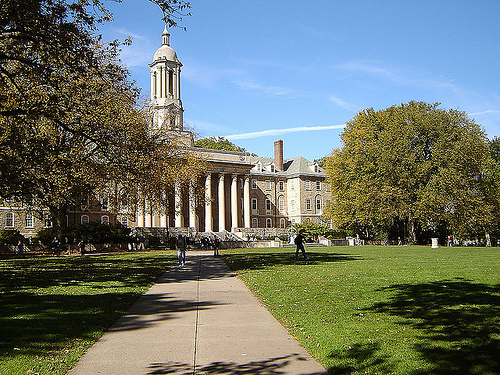THE MASSACHUSETTS Community College Executive Office says it has no plans to change procedures in light of an incident involving a student carrying a handgun at MassBay Community College. The general belief is that community colleges are often places for students from struggling and troubled backgrounds to earn a second chance to educate themselves. Forcing students to disclose criminal records, many community colleges say, will discourage students from applying at all.
“I don’t think a [criminal records check] or even asking students to disclose necessarily makes anyone safer,’’ Bristol Community College spokeswoman Sally Chapman Cameron told the Globe. “I don’t think the research is there to support that.’’
I am sure our community college leaders do not intend it this way, but that almost sounds like the National Rifle Association. All around the nation, gun rights advocates, often boosted by the NRA, are pushing for concealed-carry policies on college campuses. Most efforts have so far stalled, although a challenge to the ban at the University of Colorado has reached that state’s supreme court.

They have stalled because sanity so far is prevailing. In Idaho, for instance, a leading voice against campus carry is Republican Senate majority leader Bart Davis. He lost his 23-year-old son eight years ago at an off-campus beer party when he was shot by a Boise State University student carrying a concealed weapon. When supporters of campus-carry laws claimed students with guns would not be “drunken frat boys,’’ Davis retorted, “This is not an intellectual exercise for me and my family.’’
If guns on campus are not an intellectual exercise in Idaho, they should not be in Massachusetts. As much as our community colleges should be a place where people can find their callings and even rescue themselves, the real world of what young people can do with semiautomatics, from Columbine to Virginia Tech, mandates a tightening of disclosure policies.
The case at MassBay involved 18-year-old Darryl Max Dookhran. He was arrested at the registrar’s office in February with a loaded semiautomatic 9mm handgun in his book bag and additional rounds. He started at MassBay in January, after earning his high diploma in jail while serving time on a variety of juvenile offenses, including assault with a firearm.
A fellow student saw what he thought was a gun in Dookhran’s pants and told a professor. Dookhran was arrested and is back in the criminal justice system. The professor who turned in Dookhran’s name said it was sad because the young man was clearly “between two worlds,’’ knowing he needed an education, but not quite ready to completely let go of his past.
But that should not mean community colleges should be stuck in between these worlds, as sure as you can say the name of Jared Loughner, the alleged assailant in this year’s Arizona massacre who scared students at his community college with his behavior. The policy of not asking questions about a student’s past struggles is a noble idea, but histories of gun violence should not be part of that policy.
That does not mean a school should automatically block a student with a prior firearms record. What it does means is that the school is obligated — on behalf of all the students — to go through a process to determine whether the student has given up violence. Massasoit Community College says it is considering the disclosure of disciplinary actions. The police chief of Quinsigamond Community College told the Globe that such disclosures might help anticipate problems.
That is the direction the community colleges should go in. Had such disclosures been in place, MassBay would have asked Dookhran if he had given up guns. It may have helped him give up that world for one that centered on education.

 Follow
Follow








